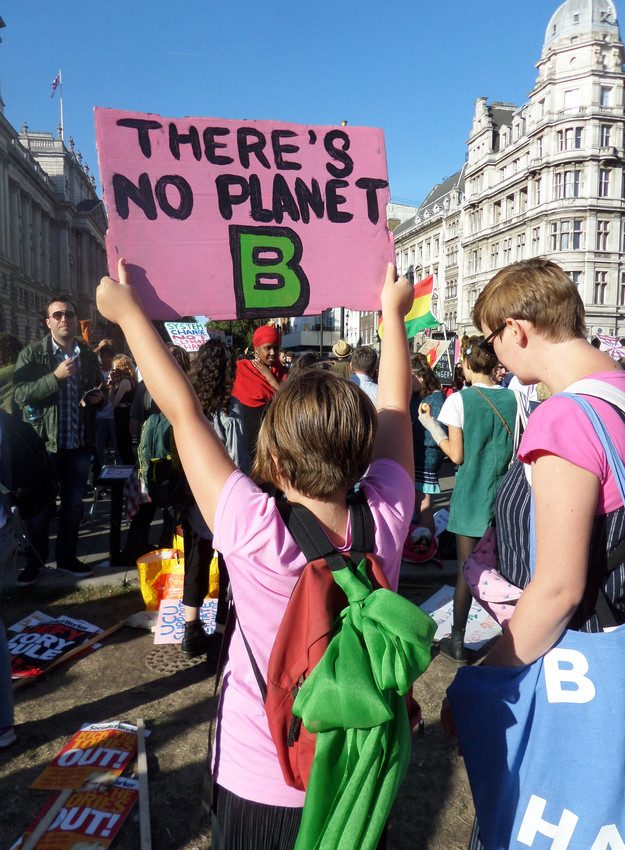Real Choices Real Lives: Climate Change and Girls' Education (2023)
Learn from girls directly about their experiences of climate change, how it affects their education, and their recommendations for mitigation and adaptation.
Children are the least responsible for creating global climate change but will bear the brunt of its effects.
Girls are disproportionately affected by the effects of climate change as the daily inequality they face is amplified.
Plan International is supporting young people to become more aware of their rights and put themselves at the forefront of fight against the climate crisis and the need for resilience.

Young people began boycotting school on Fridays to protest inaction on climate change since activist Greta Thunberg began her school strike for climate campaign in August 2018.
Since then, school-age children worldwide have followed her lead, arguing they would rather be at school but their future is under serious threat from the effects of climate change.
Plan International stands with young climate activists striking and demanding action from global leaders. We also support young campaigners from our networks to attend global climate conferences and get their voices heard.
We are working with teachers and schools in the worst-hit areas to teach young people why climate change is happening, the risks they face and the actions they can take to become more resilient.
In 2021 we worked with youth activists, Transform Education (hosted by UNGEI), to develop the #EducationShiftsPower campaign, with the aim of amplifying youth voices in spaces of power. We identified the G7, Global Partnership for Education Summit and COP26 climate conference as opportunities to push for funding and support for gender-transformative, climate-aware education.
Children’s education is often one of the first activities abandoned when disasters occur, yet it can play a critical role in building the resilience of children and their communities. Education is a key focus for our disaster preparedness and risk-reduction work.
Our Safe Schools Global Programme operated in 35 disaster-prone countries across the world, ensuring that schools were built safely and children were educated about disaster preparedness and risk reduction.
Plan International recognises that the climate crisis is an intergenerational and gender injustice.
Children around the world are taking collective action to advance climate justice. We work with children and their communities to reduce climate risks, adapt to climate change and strengthen resilience. We support their meaningful participation in decision-making and leading climate action in their communities. Innovative, games-based and experiential learning approaches are used – integrated into community or school systems for long-term impact.